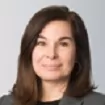Co-authored by Sophia Lam
With the ongoing pandemic exacerbating pervading health disparity and economic inequality issues in the United States, we brought together three experts to discuss their work and the impact of COVID-19 on these important topics.
Our discussion was led by Emmy award-winning broadcast journalist and senior medical correspondent for WCBS-TV, Dr. Max Gomez. Our panelists included Rita Gilles, Dr. Kishor Malavade, and Otto Starzman. Rita Gilles is an Equal Justice Works Fellow, sponsored by Bloomberg and Proskauer at the Mount Sinai Medical Legal Partnership in collaboration with the LegalHealth division of New York Legal Assistance Group. She works to provide legal aid to low-income families of children and adolescent patients at Mount Sinai Hospital in East Harlem, addressing the social and legal determinants of poor health. Dr. Kishor Malavade is the Vice-Chair of Psychiatry and Deputy Medical Director of the Department of Population Health at Maimonides Medical Center. He leads efforts to increase access to healthcare and help individuals through community-based initiatives. Otto Starzman is the Chief Production Officer and Treasurer of the River Fund, the largest free food outlet in New York City. He works on the frontlines to serve our city's most vulnerable populations in our poorest zip codes.
Our panelists discussed the intersection of legal, economic, and environmental factors that keep many Americans from recovering physically and financially from the pandemic. Health disparities result from inequalities in access to health care, housing, nutrition, and other environmental factors. Our panelists presented a variety of ways the pandemic heightened these inequalities.
Otto noted that a substantial number of the near-poor, which comprised about 44% of New Yorkers before the pandemic, were pushed into poverty during the pandemic's economic downturn. For this reason, the number of people that required food assistance from the River Fund more than doubled. "We are an emergency relief organization, but this is now how some families get stable food," said Otto, observing that food pantries cannot be the long-term solution to the rise in hunger.
Rita's work provides a range of legal aid services to low-income families, from improving their housing conditions and providing education for children with disabilities to helping victims of domestic violence. The pandemic has intensified the need for legal services as families have been forced to quarantine in poor living conditions. Children with disabilities have had to switch to online schooling. With the family court substantially closed, lining people up with the right help has become more challenging and more urgent.
Kishor went on to discuss the mistrust between certain communities and the healthcare system. Many low-income and predominately minority communities distrust the healthcare system due to a historically poor relationship. As the pandemic and the vaccine became politicized, this mistrust grew, making these communities less likely to seek care. Kishor emphasized the need for shared decision-making with communities stating that, "If you don't have trust from the community, any work will be transactional rather than improving the community at large." He called for individuals to listen to the community's needs and build connections with them to improve public health.
Our panelists are actively combating these inequalities daily. For example, Otto and the River Fund are distributing over two million pounds of food per month to 33,000 families. Kishor and Maimonides Medical Centre have created and implemented networks to work with communities, such as Community Care of Brooklyn, to build trust and improve coordinated healthcare delivery for over 600,000 Medicaid beneficiaries. Rita works with a growing number of clients and relies on help from pro bono lawyers at Bloomberg and Proskauer.
Disparities in access to legal, financial and medical support have an enormous impact on physical and mental health. As the pandemic nears its end, the discussion of health disparities should not. Significant changes are needed.
Addressing Disparities in Health and Health Care during the COVID-19 Pandemic
The content of this article is intended to provide a general guide to the subject matter. Specialist advice should be sought about your specific circumstances.


